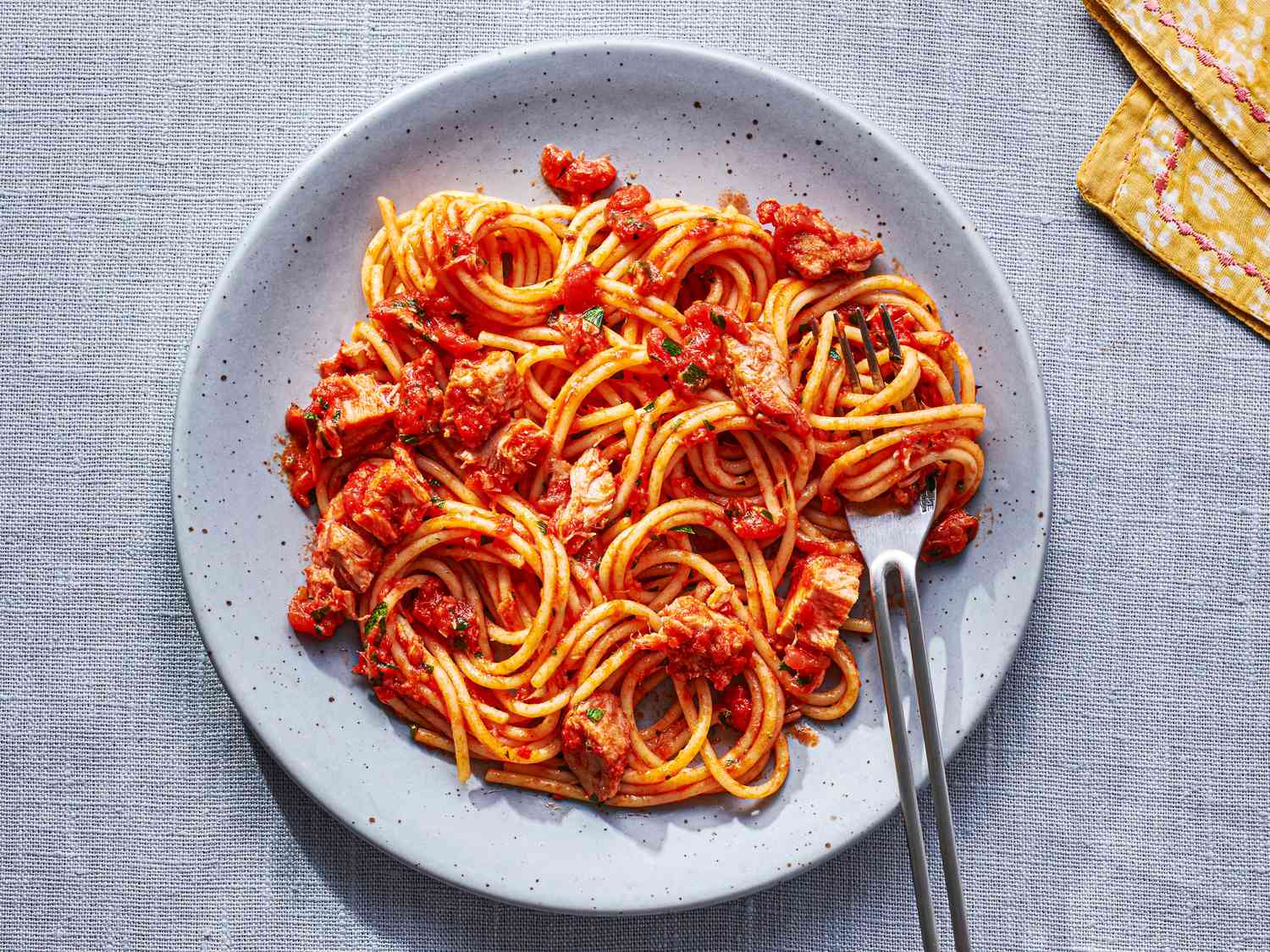Cold drinks may trigger coughing because they can temporarily irritate the throat and airways, leading to a reflexive response.
Have you ever noticed that little coughing fit that sneaks up on you when you take a big sip of a super-chilled drink? It’s like your body’s saying, “Hold up, what’s going on here?”
Well, fear not; you’re not alone in this chilly conundrum. Turns out, a fascinating interplay between your body and those ice-cold beverages might leave you scratching your head (or throat, in this case).
Let’s dive into why cold drinks can sometimes trigger a cough and uncover the science behind this unexpected reaction.
Temperature Sensitivity and Throat Irritation

Explore the concept of temperature sensitivity in the throat:
The human throat is sensitive to temperature variations, and various factors can influence this sensitivity. The throat, or pharynx, is a crucial part of the respiratory and digestive systems.
It contains delicate tissues and nerve endings that can respond differently to temperature changes. The concept of temperature sensitivity in the throat refers to how the throat reacts to hot or cold substances.
Nerve Endings: The throat is rich in nerve endings, which play a significant role in detecting and responding to stimuli. Temperature-sensitive receptors in the throat can trigger sensations and reflexes to protect the delicate tissues.
Blood Flow: Temperature changes can affect blood flow in the throat. Cold temperatures may constrict blood vessels, leading to decreased blood flow, while heat may cause vasodilation, increasing blood flow.
Mucous Membranes: The mucous membranes lining the throat are sensitive to temperature. Extreme temperatures can potentially irritate these membranes, leading to discomfort or pain.
Discuss how cold beverages can irritate the throat lining:
Cold beverages can irritate the throat lining due to several reasons:
Constriction of Blood Vessels: Cold temperatures can cause blood vessels in the throat to constrict, reducing blood flow.
Mucous Membrane Irritation: The coldness of beverages can irritate the delicate mucous membranes lining the throat. This irritation may result in a temporary inflammatory response, causing discomfort or a scratchy feeling.
Temperature Shock: Sudden exposure to cold temperatures can be a shock to the throat tissues. This shock can trigger a reflexive response, leading to a sense of irritation or pain.
Dehydration: Cold beverages may contribute to dehydration, as the body may respond to cold by reducing saliva production. Dehydrated throat tissues can become more susceptible to irritation.
Provide examples of individuals with heightened sensitivity:
Individuals with Respiratory Conditions: People with conditions like asthma or chronic bronchitis may have heightened sensitivity in their throats. Cold temperatures can trigger bronchospasms or exacerbate existing respiratory symptoms.
Allergy Sufferers: Individuals with allergies, particularly those affecting the respiratory system, may experience heightened throat sensitivity. Allergens can irritate the throat, and exposure to cold temperatures may exacerbate this sensitivity.
Reflux Sufferers: Individuals with gastroesophageal reflux disease (GERD) may have increased throat sensitivity due to stomach acid reflux. Cold beverages can potentially worsen this sensitivity.
Post-Surgical Patients: Those who have undergone throat or respiratory tract surgeries may have increased sensitivity during the healing process. Cold beverages may be more likely to cause discomfort in these individuals.
Understanding temperature sensitivity in the throat is essential for promoting throat health and minimizing discomfort. Individuals experiencing persistent throat issues should consult healthcare professionals for appropriate guidance and management.
Nerve Endings and Cough Reflex
Explain the role of nerve endings in triggering the cough reflex:
The cough reflex is a defense mechanism of the respiratory system that aids in removing irritants, mucus, or foreign substances from the airways. Nerve endings play a crucial role in triggering the cough reflex through a complex sensory process.
Sensory Nerves: The respiratory tract, including the throat and bronchi, is rich in sensory nerves known as cough receptors or irritant receptors. These nerves are particularly sensitive to various stimuli, including irritants, temperature changes, and mechanical disturbances.
Detection of Irritants: When these sensory nerves detect irritants such as dust, smoke, allergens, or excessive mucus, they send signals to the brain through the vagus nerve.
Brain’s Response: The brain processes the signals received from the sensory nerves and generates a response to protect the airways. In the case of an irritant, the brain may trigger the cough reflex to expel the irritant and clear the respiratory passages forcefully.
Discuss the body’s natural defense mechanism to protect the airways:
The cough reflex is vital to the body’s natural defense mechanisms to safeguard the airways and maintain respiratory health.
Airway Clearance: The primary purpose of the cough reflex is to clear the airways of substances that could potentially cause harm or hinder normal respiratory function. By forcefully expelling irritants, mucus, or foreign particles, the body prevents these substances from reaching the lungs.
Protection Against Aspiration: Coughing helps prevent the aspiration of liquids or food particles into the airways. If any substance accidentally enters the windpipe, the cough reflex is triggered to expel it and prevent potential respiratory complications.
Response to Infections: In the case of respiratory infections, the cough reflex is often activated to help expel infectious agents such as bacteria or viruses. This is a crucial defense mechanism to limit the spread of pathogens within the respiratory system.
Maintaining Clear Airways: The continuous function of the cough reflex contributes to keeping the airways clear and free of obstruction. This is essential for efficient breathing and optimal oxygen exchange in the lungs.
Consider variations in individual responsiveness to temperature changes:
Your responsiveness to temperature changes can vary, impacting how the cough reflex is triggered in response to different stimuli.
Increased Sensitivity: Some individuals may have heightened sensitivity to temperature changes in the respiratory tract. Cold air, for example, can trigger coughing in people with conditions like asthma or reactive airway disease.
Adaptation: Others may exhibit adaptation to temperature variations, with their respiratory system being less reactive to temperature-related stimuli.
This adaptability may be influenced by factors such as genetics, environmental exposure, and overall respiratory health.
Underlying Conditions: Individuals with respiratory conditions, allergies, or sensitivities may experience more pronounced responses to temperature changes.
Understanding these variations in responsiveness to temperature changes is important in managing respiratory health and providing personalized care for individuals with specific sensitivities or conditions.
Airway Constriction and Respiratory Conditions
Explore how cold drinks may cause temporary airway constriction:
Cold drinks have the potential to cause temporary airway constriction, primarily through a physiological response to the temperature change.
When cold substances come into contact with the respiratory tract, especially the airways and bronchi, several mechanisms can contribute to airway constriction:
Smooth Muscle Constriction: The cold temperature can stimulate the smooth muscles lining the airways to constrict. This constriction is a protective response aimed at minimizing exposure to the cold and preventing the entry of potentially harmful substances.
Vasoconstriction: Cold stimuli can lead to vasoconstriction, narrowing the blood vessels in the airway walls. This reduces blood flow to the area and may contribute to a sensation of tightness or discomfort.
Reflexive Response: The body may initiate a reflexive response to the cold, leading to the narrowing of the airways. This response aims to limit the impact of the cold stimulus on the delicate respiratory tissues.
Discuss the impact on individuals with conditions like asthma:
Individuals with respiratory conditions, especially asthma, may experience more pronounced and concerning effects when exposed to cold drinks or air.
Asthma is characterized by inflammation and increased sensitivity of the airways, and cold-induced airway constriction can exacerbate symptoms:
Bronchoconstriction: Cold air and cold drinks are known triggers for bronchoconstriction in individuals with asthma. The smooth muscles in the bronchi may contract, causing a narrowing of the airways and making it harder for individuals to breathe.
Increased Symptom Severity: Cold-induced airway constriction can lead to an escalation of asthma symptoms, including coughing, wheezing, shortness of breath, and chest tightness.
Exacerbation of Inflammation: Cold drinks may contribute to the exacerbation of airway inflammation in individuals with asthma. This inflammation can further compromise respiratory function and worsen symptoms.
Highlight the importance of understanding respiratory health:
Understanding respiratory health is crucial for several reasons, especially when it comes to factors like temperature sensitivity and airway constriction:
Personalized Care: Recognizing individual variations in respiratory health helps in providing personalized care. Tailoring interventions to a person’s specific sensitivities and conditions ensures more effective management and improved quality of life.
Prevention of Exacerbations: For individuals with respiratory conditions, knowing and avoiding triggers, such as exposure to extreme temperatures, can help prevent exacerbations and minimize the risk of complications.
Educating the Public: Public awareness about the impact of environmental factors on respiratory health is essential. Educating individuals about the potential consequences of cold drinks on airway constriction can empower them to make informed choices and take preventive measures.
Healthcare Planning: Healthcare providers can better assist individuals with respiratory conditions by considering temperature-related factors in treatment plans. This includes advising patients on managing their condition in different environmental conditions.
In summary, understanding the relationship between cold drinks, airway constriction, and respiratory conditions is vital for both individuals and healthcare providers.
It enables the development of strategies to minimize potential risks and promote better respiratory health.
Gastroesophageal Reflux and Cold Drinks
Delayed Gastric Emptying: Cold beverages may slow down the process of gastric emptying—the movement of food and liquids from the stomach to the small intestine. This delay can increase the likelihood of stomach acid refluxing into the esophagus.
Increased Acid Production: While cold drinks themselves may not directly cause increased stomach acid production, they can sometimes accompany meals. Overeating or consuming trigger foods along with cold drinks can contribute to higher stomach acid levels, exacerbating GERD symptoms.
Discuss how stomach acid reflux can lead to throat irritation and coughing:
Throat Irritation: Stomach acid reaching the throat can irritate the delicate mucous membranes. This irritation may manifest as a persistent sore throat, a lump-like sensation (globus sensation), or throat clearing.
Cough Reflex Activation: The irritation caused by acid in the throat can trigger the cough reflex as a protective mechanism. This reflex aims to clear the airways of irritants but can result in chronic coughing if the reflux is persistent.
Aspiration of Acid: In severe cases, stomach acid reflux may reach the upper respiratory tract, leading to the aspiration of acid into the lungs. This can cause respiratory issues, chronic cough, and even contribute to conditions like pneumonia.
Provide insights into managing GERD-related symptoms:
Addressing symptoms related to GERD involves a mix of lifestyle adjustments, dietary modifications, and, when necessary, medication.
Here are some insights into managing GERD:
Dietary Modifications:
Avoid trigger foods and beverages, including acidic and spicy foods, caffeine, chocolate, and citrus.
Consider reducing or eliminating the intake of carbonated and cold drinks.
While carbonated drinks are enjoyed by many, the effervescence of these beverages can contribute to throat irritation through various mechanisms:
Acidic Nature: Carbonated drinks are often acidic, and acidity can irritate the sensitive mucous membranes of the throat. The combination of carbonation and acidity may lead to discomfort, a scratchy throat, or a burning sensation.
Carbon Dioxide Release: When carbonated drinks are consumed, carbon dioxide is released in the form of gas bubbles. The effervescence can create pressure in the stomach, potentially causing the lower esophageal sphincter (LES) to relax.
Dehydration: Some carbonated drinks, especially colas, may contain caffeine, which can contribute to dehydration. Dehydrated throat tissues are more susceptible to irritation and may become dry, further exacerbating discomfort.
Discuss how carbonated cold drinks may contribute to coughing:
The combination of carbonation and cold temperatures in drinks can contribute to coughing through several mechanisms:
Irritation of Nerve Endings: The effervescence and acidity of carbonated drinks can stimulate the nerve endings in the throat. This stimulation may trigger the cough reflex as a protective mechanism to clear the airways of perceived irritants.
Increased Mucus Production: Carbonation and cold temperatures can sometimes stimulate mucus production in the respiratory tract. Excessive mucus can lead to throat irritation and coughing as the body tries to eliminate the excess mucus.
Individual Sensitivity: Some individuals may be more sensitive to the combination of carbonation and cold, experiencing heightened reactivity in their respiratory system. This increased sensitivity can manifest as coughing in response to carbonated cold drinks.
Consider alternatives for individuals sensitive to carbonation:
For individuals who are sensitive to carbonation and wish to reduce throat irritation or coughing, alternative beverage choices can be considered:
Still Water: Plain water is an excellent option for staying hydrated without the potential irritants found in carbonated drinks.
Herbal Teas: Non-caffeinated herbal teas, served comfortably, can provide a soothing alternative to carbonated beverages.
Infused Water: Add natural flavors to water by infusing it with fruits, herbs, or cucumber for a refreshing and flavorful drink without carbonation.
Decaffeinated Drinks: If caffeine is a concern, choosing decaffeinated versions of tea or coffee can provide a milder option.
Natural Fruit Juices: Opt for natural, non-acidic fruit juices without added sugars or preservatives as an alternative to carbonated drinks.
Individuals need to listen to their bodies and make choices that align with their preferences and sensitivities.
Allergic Reactions to Cold Drinks

Explore the possibility of allergic or sensitive reactions to cold drink ingredients:
While uncommon, allergic or sensitive reactions to cold drinks can occur, and individuals may react to specific ingredients found in these beverages. Potential contributors to allergic reactions include:
Common Allergens: Some individuals may be allergic to common allergens found in cold drinks, such as nuts, soy, dairy, or wheat. Always check ingredient labels to identify potential allergens.
Food Additives: Cold drinks often contain various additives, colorings, and flavorings. Allergic reactions may result from sensitivity to these additives, including artificial sweeteners, food dyes, or preservatives.
Cross-Contamination: Cross-contamination during the manufacturing process can introduce allergens into cold drinks. Individuals with severe allergies must be cautious about the potential presence of allergens from shared equipment.
Cold-Induced Urticaria: Some individuals may experience cold-induced urticaria, an allergy-like reaction triggered by exposure to cold temperatures. Cold drinks, especially those with ice, can induce hives, itching, or swelling in susceptible individuals.
Highlight specific additives or preservatives that may trigger coughing:
Certain additives or preservatives in cold drinks may trigger coughing or throat irritation in sensitive individuals:
Sulfites: Sulfites are preservatives often used in beverages, including some cold drinks. Sulfite sensitivity can lead to respiratory symptoms, including coughing, particularly in individuals with asthma.
Food Dyes: Artificial colorings and dyes in cold drinks may cause allergic reactions in some individuals. Sensitivities to specific dyes can vary, and symptoms may include throat irritation and coughing.
Emphasize the importance of recognizing and managing allergies:
Recognizing and managing allergies is crucial for maintaining overall health and preventing adverse reactions. Here are key considerations:
Read Labels: Always read ingredient labels on cold drinks to identify potential allergens or additives that may trigger allergic reactions.
Know Personal Triggers: Individuals with known allergies or sensitivities should know their specific triggers and avoid beverages containing those substances.
Carry an Epinephrine Auto-Injector: For individuals with severe allergies, especially to common allergens like nuts or shellfish, carrying an Epinephrine auto-injector is crucial in case of an emergency.
Inform Food Service Providers: When dining out, inform food service providers about allergies to ensure safe food and beverage choices.
Emergency Action Plan: Individuals with severe allergies should have an emergency action plan in place detailing steps to take in case of an allergic reaction.
Recognizing and managing allergies is essential for preventing adverse reactions to cold drinks or any other food and beverage.
FAQs
Why do cold drinks make me cough?
Cold drinks can trigger the cough reflex due to factors such as temperature sensitivity, carbonation, or irritation caused by additives.
Does carbonation in cold drinks contribute to coughing?
Yes, carbonation can stimulate nerve endings in the throat, leading to coughing as a protective response.
Can cold temperatures alone cause coughing?
Yes, exposure to cold drinks may induce reflexive airway constriction, contributing to coughing.
Could I be allergic to something in cold drinks?
Yes, allergies or sensitivities to ingredients like additives, artificial sweeteners, or preservatives can lead to coughing.
Why does throat irritation happen with cold beverages?
Throat irritation may result from the combination of cold temperature and acidity in some drinks, leading to discomfort and coughing.
Does caffeine in cold drinks contribute to coughing?
Caffeine, a diuretic, may contribute to dehydration, which can lead to throat irritation and a potential cough.
Can drinking too quickly cause coughing with cold beverages?
Yes, drinking rapidly may lead to inhaling cold liquid, triggering the cough reflex.
Is there a link between cold drinks and asthma-related coughing?
Yes, cold air or beverages can be asthma triggers, causing airway constriction and coughing in individuals with asthma.
How can I prevent coughing with cold drinks?
Sip cold drinks slowly, be mindful of ingredients, and consider alternatives like room temperature or non-carbonated beverages.
Are there specific additives known to cause coughing?
Some additives or preservatives like artificial sweeteners, citric acid, or sulfites may contribute to throat irritation and coughing.
Conclusion
You need to be aware of your body’s reactions when it comes to cold drinks. Consider factors like the drink’s temperature, carbonation, or potential allergens if you notice throat irritation or coughing.
Pay attention to ingredient labels, especially if you have known sensitivities. Taking care of your health means making choices that keep you comfortable and enjoying your beverages without any issues.
Stay mindful, and consult with a healthcare professional for personalized advice if needed.











